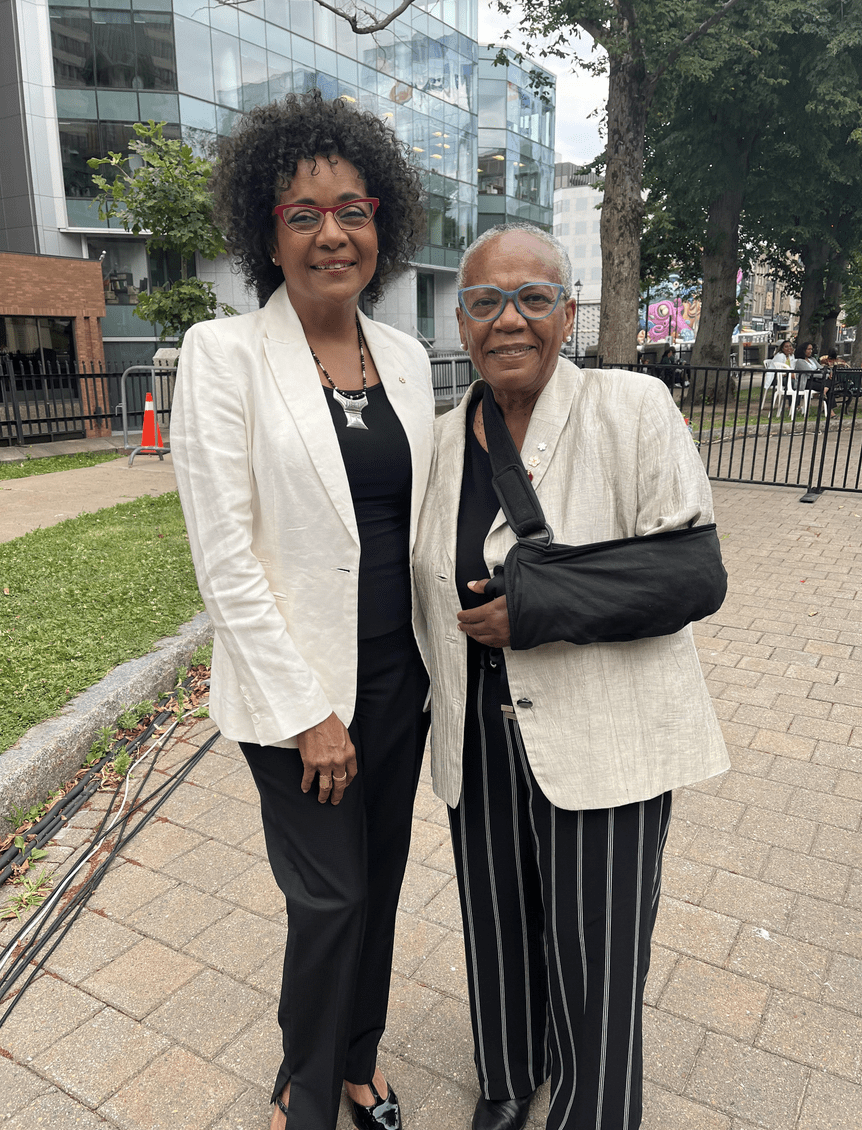‘From Strength to Strength’: What’s Next for Black Canadians?

Wanda Thomas Bernard
August 4, 2022
The past week has been a significant one for Black Canadians. First, the third National Black Canadians Summit was held in Halifax July 29-31, followed by Canada’s second official Emancipation Day on August 1st. As long weekends go, it was a tremendously powerful one.
Hosted by the Fondation Michaëlle Jean, the organization launched by Canada’s first Black Governor General, and supported by many local and national Black organizations, the NBCS brought together Black people and allies from across Canada to engage in meaningful dialogue about critical issues caused by systemic anti-Black racism and to share ideas about systemic solutions. More than 1,200 people attended the summit, exceeding expectations of the organizers.
This year’s summit was hosted in Halifax — in my home province of Nova Scotia — because of its historic legacy. To situate the delegates in the place so crucial to the Canadian story of African peoples, the cradle of Black presence in Canada, the summit began with tours of the Africville Museum in Halifax and the Black Cultural Centre for Nova Scotia in Cherry Brook.
It was also strategically timed on the eve of Emancipation Day so that our deliberations, commemorations and celebrations would lead into this second year of national recognition of August 1st as the anniversary of the Abolition of Slavery in the British Colonies.
The timing of the Halifax Declaration on the eve of Emancipation Day underscored the epic arc of the Black Canadian narrative.
The NBCS is organized to be an inclusive summit, reflecting the full tapestry of Canadian identity, with active engagement across genders, youth, seniors, community members, leaders and politicians. There were amazing connections made across intersectionalities, with common themes and common concerns about issues such as education, justice, health, economic justice, and the need for recognition, action and systemic change.
The summit concluded with the historic Halifax Declaration, a call to action demanding justice and equality for Black Canadians and people of African descent. Lynn Jones, a Black Nova Scotian elder, introduced the declaration, which was presented by multiple readers and brought to life by artists, musicians, singers and dancers dramatizing the history of African Nova Scotians. “From strength to strength, we have persisted, created, remembered and marched forward,” Jones said. “We are here.”
The declaration includes three main pillars: recognition, justice, and development, the same pillars introduced by the United Nations international decade for people of African descent, which began in 2015.
The declaration also contains a series of calls to action, including:
- That federal government enact legislation recognizing people of African descent in Canada as a distinct group and recognize their contributions.
- A recognition of the realities of slavery and its impacts.
- For Parliament to implement a Declaration of Cultural Rights recognizing the artistic contributions and heritage of Black Canadian creators.
- For media to create a statement of ethics on reporting on Black communities and diversity in newsrooms.
- For museums and libraries to preserve Black history.
- For the federal government to adopt a framework for reparations toward Indigenous people and people of African descent.
- For greater accountability and recognition of harm from police and law enforcement.
- For reform of the education system to address anti-Black racism.
I encouraged all attendees to become active agents of change to help make these recommendations become a reality.
The timing of the Halifax Declaration on the eve of Emancipation Day underscored the epic arc of the Black Canadian narrative. As I stated in my remarks at the closing event of the summit on Sunday: “Acknowledging Emancipation Day is acknowledging the existence of slavery in Canada. This is an important first step that allows us to take time to remember, reflect, learn and engage with Black communities. It is also a time to acknowledge the harms that followed when anti-Black racism took root in many different forms throughout Canada. This year, for Emancipation Day, I am asking the question, ‘What’s next?’. Beyond creating awareness about Emancipation, and honouring our collective past, Black Canadians are owed apologies, reparations, AND systemic change.”
Attendees agreed.
To walk into the Halifax Convention Centre at the start of the summit and see African Canadians from all over the country coming together to speak about the issues that really matter to us was inspiring and empowering. The message that Black Lives Matter was central to every conversation, along with a sense of urgency that we need action now. That’s what’s next: fighting for legislative change that will help eradicate anti-Black racism, and, in the process, enhance quality of life for all Canadians.
In her closing remarks, former Governor General Jean vowed that “We will remember this moment becoming a movement!” As a participant and a witness, I can promise her that none of us will ever forget.
Senator Wanda Thomas Bernard is an Independent Senator from East Preston, Nova Scotia and the first African Nova Scotian woman to be appointed to the Senate. You can follow her on Twitter @SenatorWanda.
